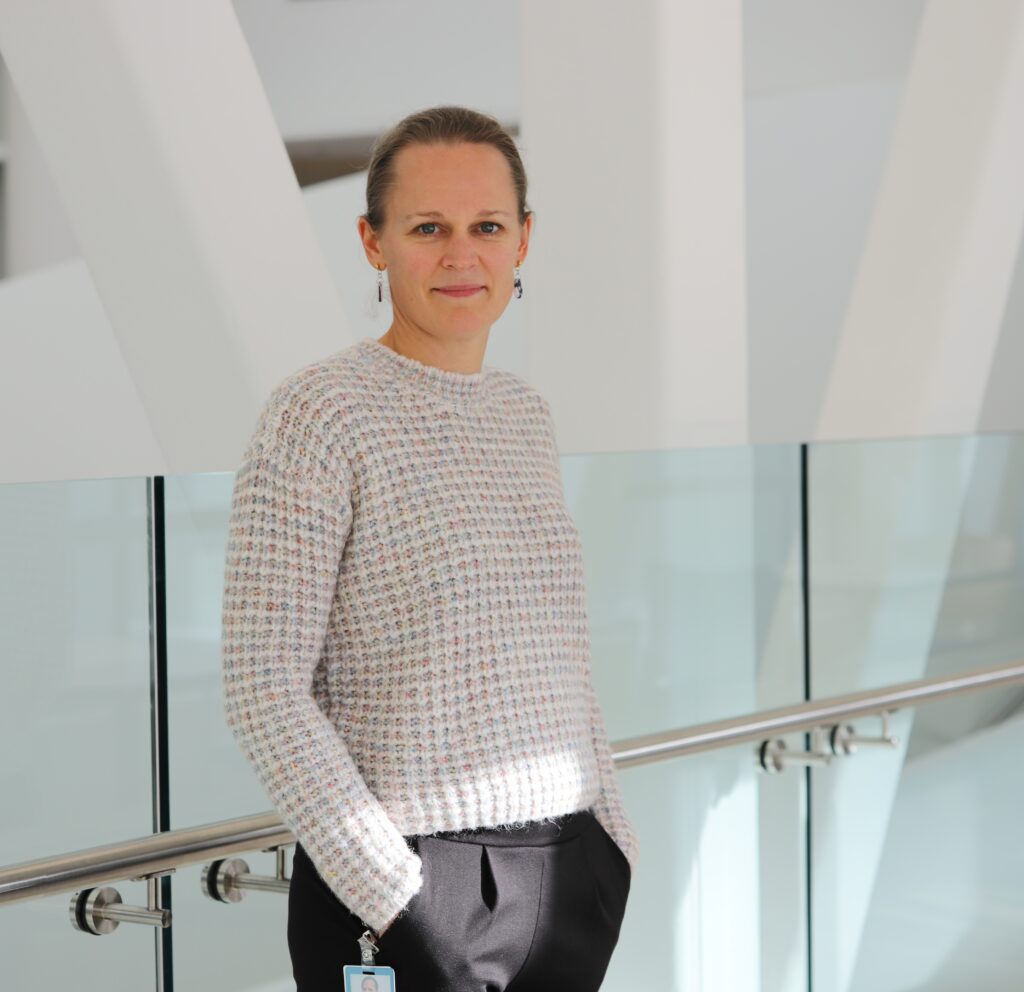We are Women’s offers the WCH community a chance to get to know each other and share our stories.

Name: Tammy MacLean
Title & Department: CIHR Post Doctoral Health System Impact Fellow, Centre for Wise Practices – Indigenous Health
On the WCH team for: Just over a month.
1. What does your typical work day look like?
I was fortunate to secure a two-year research fellowship from the Canadian Institutes for Health Research to carry out an embedded research project at the Centre for Wise Practices in Indigenous Health (CWP-IH). My first priority is to refine the research plan. This involves engaging the team at the CWP-IH and their in-house Indigenous Decision-Making Council (DMC), as well as experts in the field of critical health research to support and guide me in the right direction. My research focus will involve a different paradigm than that which I am used to, so I have some learning to do! I’ve spent most of the last month reading and familiarizing myself with the approach and methods, providing updates and receiving feedback from the CWP-IH team, and meeting with academic experts who undertake this type of work. It’s such a pleasure to have the time to learn a new methodology while also contributing to meaningful work. Once the research plan is developed, I will submit it to the Research Ethics Board at University of Toronto for approval. In the meantime, I will document the work undertaken to-date at the CWP-IH so they have an official record.
2. What excites you the most about working at WCH?
The CWP-IH is pushing the boundaries in healthcare by promoting traditional Indigenous health and healing practices and a culturally safe space for Indigenous peoples at WCH. It’s very exciting. Health systems across Canada have historically failed First Nations, Inuit, and Métis peoples. I began my career as a Registered Nurse and experienced first-hand the inequitable treatment of Indigenous patients both in Canada and Australia. My most memorable experience involved a posting to Inuvik, a community of 3,000 people in the Northwest Territories, situated 75km south of the Beaufort Sea. While this posting opened my eyes to the rich Indigenous traditions, cultures, and ways of life in the North, I also bore witness to the significant health challenges the community faced because of significant food insecurity and culturally unsafe healthcare. Fresh produce and non-processed foods are very expensive to purchase and the hospital where I worked did not orient me to the local languages, history, or cultures. For example, I did not know words such as ‘pain’ and ‘hungry’ in Inuvialuktun or Gwich’in, two common local languages. Most of the Elders I cared for could not speak English. Canada’s Truth and Reconciliation Commission outlines seven Calls to Action for the health sector. Dr. Lisa Richardson is pioneering this work at WCH to not only create culturally safe spaces for Indigenous patients, but also for Indigenous health educators, researchers, and professionals. It’s very exciting to witness this work and to be able to support Lisa’s vision through my research.
3. How does your work contribute to creating a positive patient experience?
It’s my hope that my research will bring to light some of the tensions and challenges that Indigenous health professionals, researchers, and educators face while promoting Indigenous health in a large, urban Canadian healthcare institution. Our Western biomedical system prioritizes treatment pathways that do not necessarily recognize Indigenous health, wellness, and healing perspectives nor practices that are built on sophisticated systems of traditional knowledges. Restrictions tend to be put in place for such practices on the grounds that they are unfamiliar to healthcare providers and therefore may be contraindicated with biomedical treatments. It should be the responsibility of non-Indigenous health promoters and professionals to advocate for health systems that are equitable for all peoples that have been made vulnerable, and to lead the charge on reconciliation with Indigenous peoples based on the TRC Calls to Action. Through my research, I hope to be able to contribute toward these ends.
4. Tell us one (or three) thing(s) that your colleagues would be surprised to learn about you?
- I can play the snare drum. My husband and I both have Scottish heritage, and he grew up playing the bagpipes. While he was posted in Geneva to represent the Federal Government at the United Nations, I went with him to pipe band practice. It was a joy to celebrate Scottish traditions while playing at local engagements in the community.
- I’ve lived in ten different cities since my childhood. My family moved a lot for my dad’s work while I was growing up and I seemed to have carried the practice into my adulthood. While moving has its challenges, it can also be liberating.
- I’m the first person in my family to receive a graduate degree.